You Don't Know What You Don't Know | The 4 States of Competence
As part of my ongoing quest to deconstruct the world to try and understand it, I came across a phrase which sparked the writing of this post. It was ‘unconscious competence’ and it was mentioned in the context that we all to often get sucked into following other people’s advice (whether they are experts or just confident they’re correct) and forget to use discernment and critical thinking when evaluating new information. This can be clearly seen when learning something new - people who are no better than me have given me advice I didn’t ask for, advice that is next to useless because it isn’t backed up by any skill in the task. Aligning our awareness (consciousness) with our current skill level (competence) keeps us grounded and we can more accurately use this information than if we pretend we are better than we are. Delusion can only get us so far in life.
Four stages for learning any new skill
Noel Burch developed the idea of the different stages of learning in the 1970s when he worked for Gordon Training International. He identified how connected our psychological state is to our ability of mastering skills. Anyone who has learned anything will realise how many emotions come into play, especially at the beginning. Frustration, perseverance, judgement, failure, these all are felt in varying degrees at varying times. In my own experience I can credit working on my mindset as infinitely more effective than merely working on technique and this model is a wonderful map to help navigate through the ups and downs of this process.
The 4 States of Competence is a model that describes the processes one goes through as he learns a new skill. It shows that humans are originally oblivious of their incompetence. Once they are aware of their ineptitude, they try to develop a skill that they can utilise along the way. As time progresses, this acquired skill is effectively used without conscious contemplation. It is in this stage when a human develops mastery – also known as unconscious competence.
There are various stages of learning we go through in order to acquire new skills - we all start at the very beginning and over time, develop the skills and techniques needed. This model is a guide through the learning process, highlighting why obstacles exist and what the best ways to overcome challenges are each stage of the way. It is a great way for someone without the benefit of a coach or mentor to monitor their own individual development. We can help ourselves by developing self-awareness and cultivating the ability to see our weak spots and failings, after all you can’t manage what you can measure.
The 4 States of Competence Explained
Stage 1:
Unconsciously Incompetent
Wrong Intuition
I Don't Know That I Don't Know
This is the stage of being blissfully ignorant; things appear easy and within your grasp until you begin to try to do them - just like the armchair experts shouting at the TV when sports is on.
You lack the skill, capacity and knowledge at this stage and are reliant on the information of others to guide you. Hopefully you have an experienced teacher to help you build a solid foundation and develop good habits.
You aren’t able to correct yourself yet as you don’t know the difference between what feels right and what feels wrong so it’s important at this time to be humble enough to recognise your limitations and be open to accept feedback.
Stage 2:
Consciously Incompetent
Wrong Analysis
I Know That I Don't Know
Once you’ve developed some familiarity with the skill, you begin to see what you don’t know and what you need to learn in order to progress. This is the beginning of developing consciousness about everything you don’t know; it is your hopes, dreams and aspirations of what you will one day achieve that carries you through this difficult period.
Unlike before, you now know when you’re not doing a skill correctly and you can start to problem solve because you’ve developed some perception of what’s needed. You begin to see and appreciate in others the skills needed for mastery and recognise how easy they make things look.
This stage can be the most uncomfortable and frustrating because you must come to terms with the fact you’re currently not very good compared to where you’d like to be; things might be taking longer than expected as you stay on a plateau and don’t feel like you’re going anywhere. Acknowledging your incompetence paves the way for you to continue onwards and keep at it.
Stages 1 and 2 are the most common for people to stay in and these are the stages when you’re most likely to give up; the emotional tools needed to reach stage 3 aren’t always available and much will depend on the advice of teachers for techniques to overcome these hurdles. A lot of the time we aren’t told that failure is a prerequisite for success and use our failures as a sign we are not good enough for the task at hand. Developing resilience, perseverance and determination as well as understanding the ups and downs of the process can help us continue onwards.
Stage 3:
Consciously Competent
Right Analysis
I Know That I Know
The curve now moves upwards and you’re out of the dip; you are now far more familiar with the skill and are consciously competent so you can focus on refining small details and repetitions needed for mastery. You are likely to be much better than you realise at this stage as your knowledge inevitably reveals itself through your actions, things flow easier than before and the ups and downs don’t feel nearly as intense.
You are now more familiar with other ways of perfecting a skill and see the nuance within it. It is likely you are becoming more self-disciplined within your mindset as well and not letting the emotions of failure or success dictate how you feel. You are able to perform the skill but it still takes effort, thought and concentration.
Stage 4:
Unconsciously Competent or Mastery
Right Intuition
I Don't Know That I Know
You’ve arrived!
Performing the skill has become automatic and you make it look easy - because, after all the time, effort and perseverance - it is! You can rely on things ‘feeling right’ and may not even be able to explain how you are able to do the skills you can as they’re now second nature for you - you’ve achieved automaticity.
‘Automaticity is the ability to do things without occupying the mind with the low-level deails required, allowing it to become an automatic response pattern or habit. It is usually the result of learning, repetition, and practice. Examples of tasks carried out by ‘muscle memory’ often involve some degree of automaticity.’
- Wikipedia
The only danger now is to not become too complacent or ignorant about new ways of doing things. Learning happens in stage 3 so in order to keep developing and growing you need to stay open to different ways of refining your technique. This is why professional golfers at the top of their sport re-learn their swing and take steps back in order to make progress. This refinement process is never-ending.
Stage 5:
Conscious Competence of Unconscious Incompetence
Reflective Ability
A bonus stage!
This is the newest addition to the competence model that builds on the previous four levels by bringing in the idea you are so familiar with your skill you can teach it to others.
The old saying, ‘those who can, do; those who can’t, teach’ doesn’t apply to you because you can teach others how they too can move through the different stages to get to where you are now.
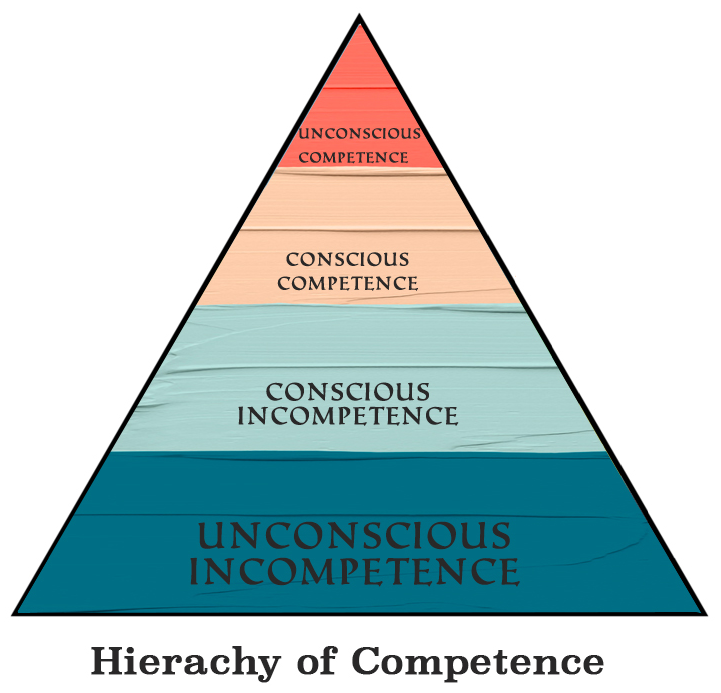
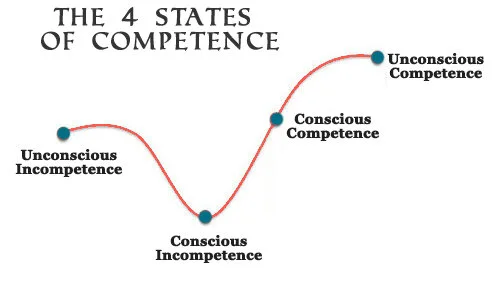









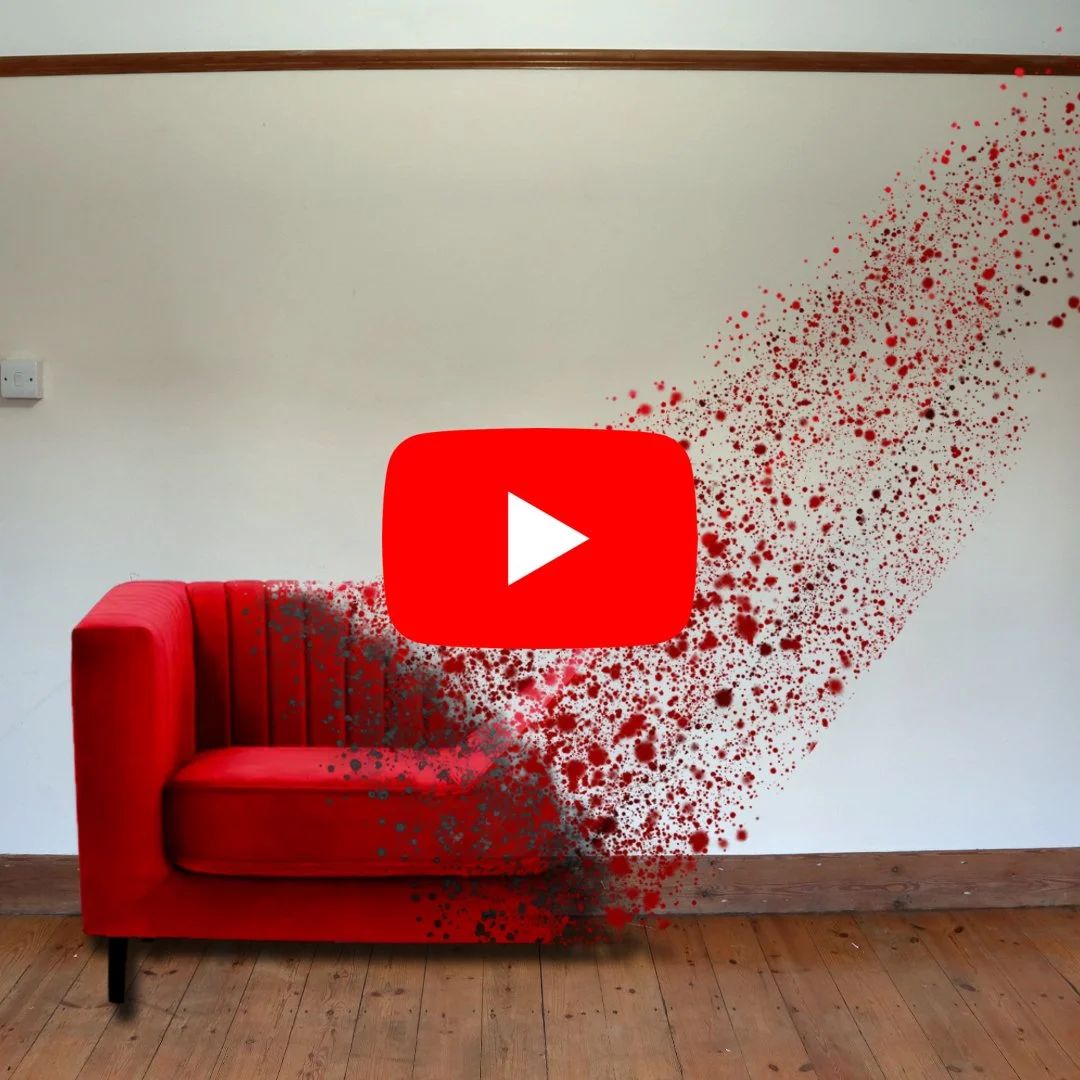






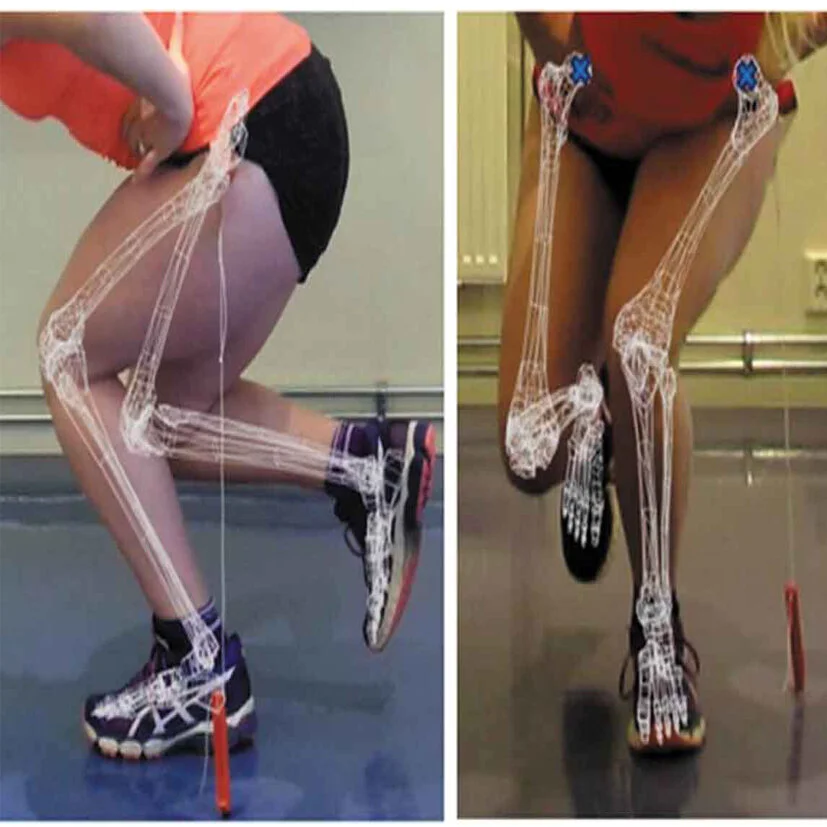










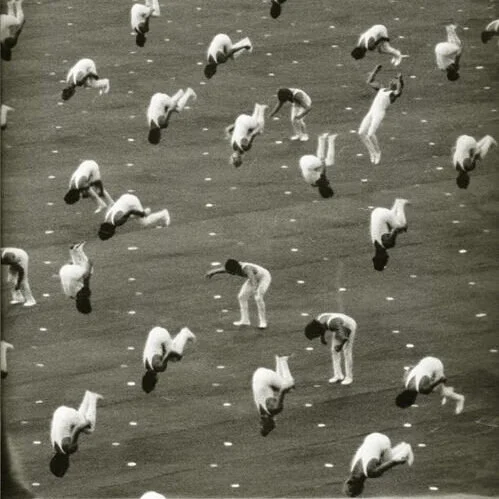






What are the most common misconceptions about furniture free? Well these are my top three!